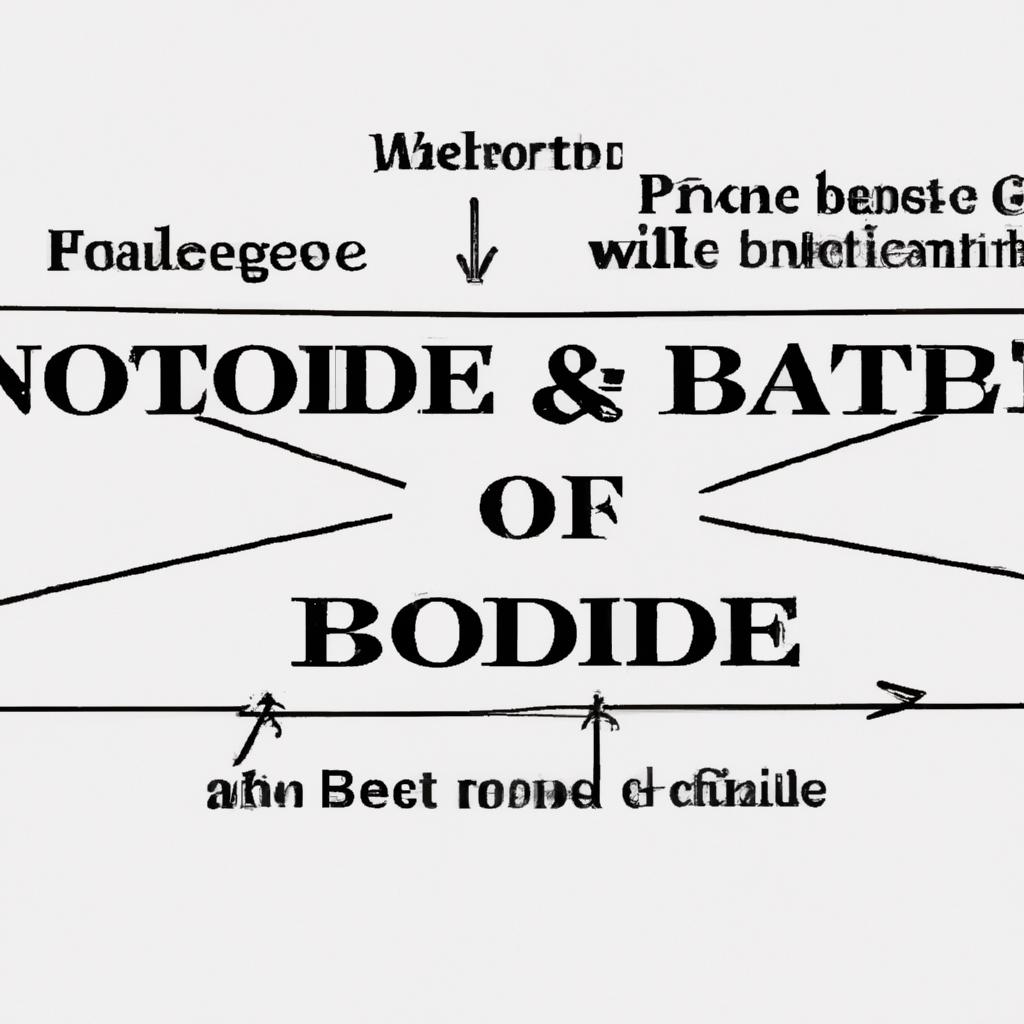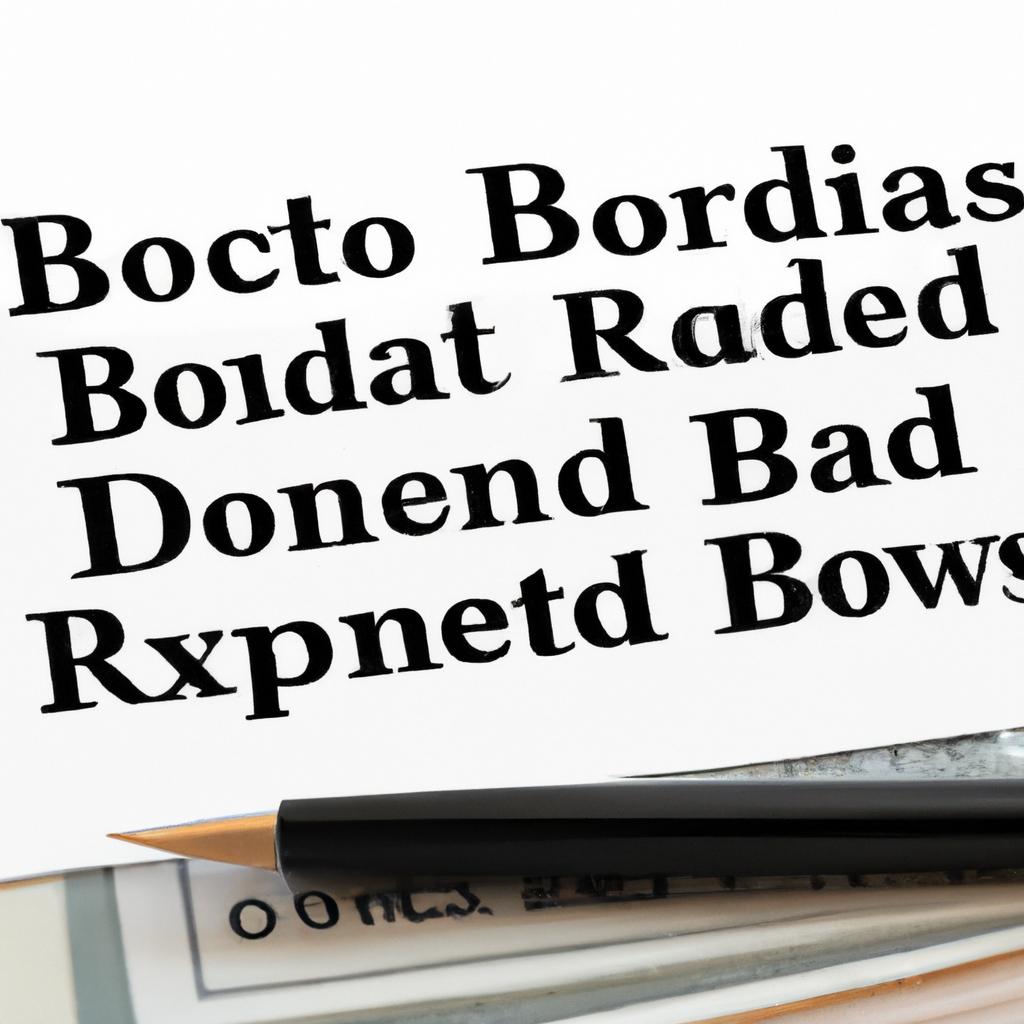Probate bonds play a crucial role in ensuring that the estate of a deceased individual is handled appropriately and responsibly. However, questions often arise among beneficiaries and heirs as to whether these bonds are refundable in certain circumstances. In this article, we will delve into the complexities surrounding probate bonds and explore the possibilities of obtaining a refund. As experienced lawyers at Morgan Legal Group in New York City, we are well-equipped to provide clarity on this matter and guide you through the intricate processes of probate law.
Understanding the Nature of Probate Bonds
Probate bonds, also known as fiduciary bonds, are required by the court to ensure that the executor or administrator of an estate fulfills their duties in accordance with the law. These bonds act as a form of insurance to protect the beneficiaries and creditors of the estate. In the event that the executor fails to properly handle the estate, a probate bond provides financial compensation to those who suffer losses as a result.
One common question that arises is whether a probate bond is refundable. The answer to this question is dependent on the specific circumstances of the case. In general, probate bonds are not typically refundable once they have been issued. However, there may be certain situations where a refund can be requested, such as if the bond is no longer needed or if the court determines that it is no longer necessary. It is important to consult with a legal professional to determine the appropriate course of action regarding probate bond refunds.

The Importance of Ensuring Full Compliance with Probate Requirements
When dealing with probate proceedings, it is crucial to adhere to all requirements and regulations set forth by the court. Failure to do so can lead to delays, disputes, and possible legal consequences. One important aspect of probate is the requirement for a probate bond, which serves as a form of protection for the estate and its beneficiaries.
Probate bonds are typically required to ensure that the executor of the estate fulfills their duties and responsibilities in a proper and lawful manner. These bonds provide financial security in case the executor fails to properly distribute assets, pay creditors, or fulfill other obligations. It is essential to understand the role of probate bonds and the consequences of non-compliance with this requirement to safeguard the interests of all parties involved in the probate process.

Exploring the Process of Obtaining a Refund for a Probate Bond
When it comes to probate bonds, the question of whether they are refundable can often be a complex one. In general, probate bonds are required to ensure that the executor of an estate properly fulfills their duties. If the executor is unable to do so, a probate bond provides financial protection for the beneficiaries of the estate. Whether or not a probate bond is refundable typically depends on the specific circumstances of the case.
One common scenario in which a probate bond may be refundable is if the executor successfully completes all of their duties and the estate is closed without any outstanding issues. In this situation, the probate bond may be discharged and the premium refunded to the executor. However, if the executor fails to properly fulfill their duties or if there are any claims against the estate, the probate bond may not be refundable. It is important to consult with an experienced attorney to understand the specific terms and conditions of the probate bond in question, as well as the process for obtaining a refund.

Expert Recommendations for Handling Probate Bond Refunds with Ease
Handling Probate Bond Refunds with Ease
When it comes to probate bonds, one common question that arises is whether they are refundable. The answer to this question is yes, probate bonds are refundable under certain circumstances. However, the process of obtaining a refund can be complex and time-consuming. It is essential to follow the correct procedures to ensure a smooth refund process.
Here are some :
- Review the bond agreement: Before applying for a refund, carefully review the terms of the probate bond agreement to understand the refund policies and procedures.
- Submit all required documents: Make sure to submit all necessary documents, such as proof of death or termination of the bond, to the bonding company to initiate the refund process.
- Follow up regularly: Stay in touch with the bonding company to track the progress of your refund request and address any issues that may arise.
Q&A
Q: Is a probate bond refundable?
A: Wondering if you can get your money back on a probate bond? Let’s unravel the mystery of probate bond refunds in this article!
Q: What is a probate bond?
A: Before we dive into refunds, let’s clarify what a probate bond actually is. A probate bond, also known as a fiduciary bond, is a type of insurance policy that protects the beneficiaries of an estate in case the executor fails to fulfill their duties.
Q: Are probate bonds refundable?
A: While probate bonds are typically non-refundable, there are exceptions to this rule. Some bond providers may offer partial refunds under certain circumstances, such as if the estate is settled quickly or if the terms of the bond are met without any issues.
Q: How can I find out if my probate bond is refundable?
A: To determine if your probate bond is refundable, you’ll need to review the terms and conditions of the bond agreement. If there is any uncertainty, it’s best to contact the bond provider directly for clarification.
Q: Are there any specific requirements for obtaining a refund on a probate bond?
A: The requirements for obtaining a refund on a probate bond can vary depending on the bond provider. In general, you may need to provide documentation proving that the conditions for a refund have been met, such as proof of estate settlement or compliance with the terms of the bond.
Q: Is it common for probate bonds to be refunded?
A: While probate bond refunds are not as common as other types of insurance refunds, they are not unheard of. It ultimately depends on the specific circumstances of the estate and the bond agreement in question.
Q: What should I do if I believe I am eligible for a refund on my probate bond?
A: If you believe you are eligible for a refund on your probate bond, the first step is to review the terms of the bond agreement and gather any necessary documentation. Then, contact the bond provider to inquire about the refund process and next steps to take.
To Conclude
In conclusion, understanding probate bonds and whether they are refundable can be a complex process. It is important to consult with a legal professional or financial advisor to ensure that you are fully informed and prepared for any potential outcomes. Remember, knowledge is power and being well-informed can help you navigate the probate process with confidence and peace of mind. Thank you for reading and we wish you the best of luck on your probate bond journey.
 Is a Probate Bond Refundable?
Is a Probate Bond Refundable?
Probate bonds are a crucial part of the probate process, ensuring that the assets of the deceased are properly managed and distributed to their rightful heirs. However, there is often confusion surrounding probate bonds and their refundability. Many people ask, “Is a probate bond refundable?”
The short answer is yes, probate bonds are refundable. However, the process for obtaining a refund may vary depending on the specific circumstances of the case. In this comprehensive guide, we will explore what probate bonds are, when they are needed, and how to obtain a refund.
Understanding Probate Bonds
Probate bonds, also known as executor bonds or fiduciary bonds, are a type of surety bond required in probate court. They are designed to protect beneficiaries and creditors of an estate from any mismanagement or misconduct by the executor or administrator of the estate. Probate bonds are usually required when the executor or administrator is not a close family member or does not have a good credit history.
These bonds act as a guarantee that the executor or administrator will fulfill their duties and distribute the assets of the estate fairly and in accordance with the law. In the event of any misconduct or mismanagement, the bond will provide financial compensation to the beneficiaries and creditors of the estate.
When Are Probate Bonds Refundable?
Probate bonds are typically refundable upon the completion of the probate process. This means that once the executor or administrator has fulfilled all of their duties and the assets of the estate have been distributed, the bond can be refunded.
In some cases, the court may release the probate bond before the completion of the probate process. This can happen when the executor or administrator is relieved of their duties or when the assets of the estate are distributed earlier than expected. In these cases, the bond can also be refunded.
The Process for Obtaining a Refund
The first step in obtaining a refund for a probate bond is to file a request with the court. This request should include a copy of the original bond, proof of the completion of the probate process, and a request for the bond to be released and refunded.
The court will review the request and may require additional documentation or information before releasing the bond. Once the court approves the refund, the bonding company will return the principal amount of the bond to the executor or administrator. In some cases, the bonding company may also charge a processing fee.
It is important to note that the refund process may be different for each state. Some states require the executor or administrator to pay for any outstanding taxes or debts before the bond can be refunded. Others may require the court to review and approve the executor or administrator’s final accounting before releasing the bond.
Benefits and Practical Tips
In addition to providing financial protection for beneficiaries and creditors, obtaining a probate bond can also bring peace of mind to the executor or administrator. It serves as a guarantee that they will fulfill their duties and avoid any potential legal liability.
When it comes to obtaining a refund for a probate bond, there are a few practical tips to keep in mind. First, it is important to choose a reputable bonding company with a good track record. This will ensure a smoother refund process and avoid any potential issues.
It is also crucial to keep all documentation and records related to the probate process organized and readily available. This will make it easier to provide the necessary information to the court and bonding company when requesting a refund.
In some cases, the probate process can be lengthy, and the estate may not have enough funds to cover the cost of the bond. In these situations, the executor or administrator may have to pay for the bond out of their own personal funds. It is essential to plan for this possibility and have enough personal funds available or consider purchasing a smaller bond.
Case Studies and Firsthand Experience
To further illustrate the process of obtaining a refund for a probate bond, let’s look at two case studies:
Case Study 1: Jane was appointed as the executor of her father’s estate. She was required to obtain a probate bond in the amount of $100,000. Jane completed the probate process within a year and requested a refund for the bond from the court. After reviewing her request, the court released the bond and returned the $100,000 to Jane.
Case Study 2: John was appointed as the administrator of his brother’s estate. He obtained a probate bond in the amount of $50,000 and completed the probate process in six months. However, the estate had outstanding debts and taxes that needed to be paid before the bond could be refunded. John had to use personal funds to pay for these expenses and then requested a refund for the bond, which was approved by the court.
In both of these cases, the probate bond was refundable, but the process and requirements for obtaining a refund were different.
In conclusion, probate bonds are an essential part of the probate process, providing protection and security for beneficiaries and creditors. They are refundable upon the completion of the probate process, but the process for obtaining a refund may vary. It is important to understand the requirements and plan accordingly when obtaining a probate bond to ensure a smooth and hassle-free refund process.







